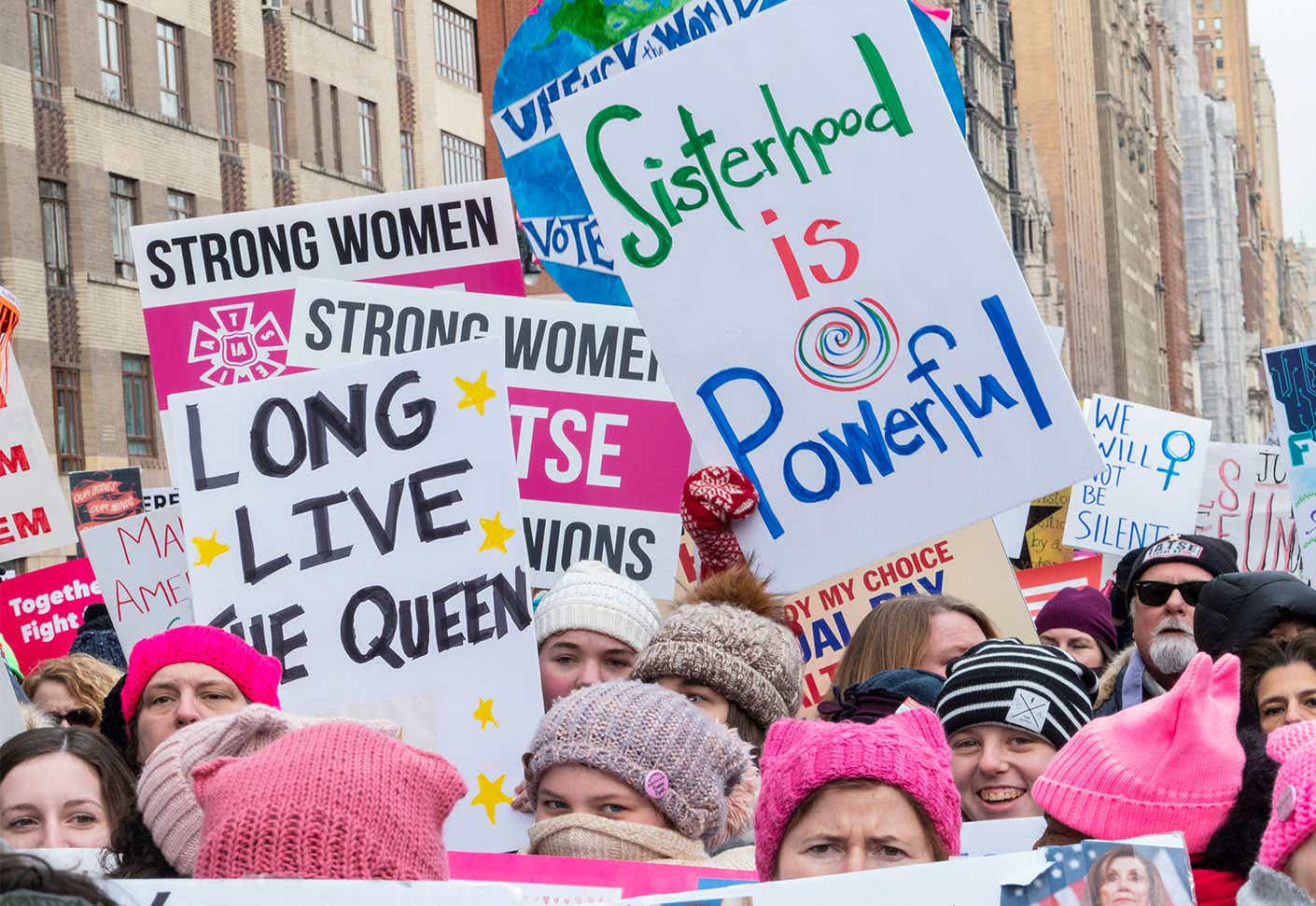The #MeToo movement ushered in a new era of social activism among women. Based on a term first coined in 2006 by advocate Tarana Burke, it was aimed at combating sexual abuse and sexual harassment while marking a reckoning for several high-profile men in power, including Bill Cosby and Harvey Weinstein.
But some organizations within the movement, including the Women’s March, were rocked by claims of anti-Semitism and criticism for not being inclusive of all women. Former Jezebel editor-in-chief Koa Beck told Wake-Up Call that these issues date back decades to the suffrage movement, saying that the movement continues to systematically shut out women of color, along with other minority groups.
“This idea that there is a path for gender equality that does exist out there if you do A, B, C, and D — as I make the case for in my book, that path is not available to so many women and non-binary people,” she said.
Beck is currently promoting her new book, White Feminism: From the Suffragettes to Influencers and Who They Leave Behind, which explores the history of feminism — specifically, white feminism. This form of feminism has traditionally centered on white women’s experiences while failing to address the forms of oppression that minority women face.
“I hope that the takeaway from this book is that there are so many different types of feminism to practice and that our history is very pertinent in coming to a universal understanding of what gender equality could be,” she said.
For Beck, the book was especially personal, given her experience working in newsrooms and for women’s media brands like Vogue and Marie Claire as a biracial woman and member of the LGBTQ community. But Beck said the idea for the book didn’t come until she started doing speaking engagements amid #MeToo, saying there was always at least one young girl asking directly about white feminism.
“I found myself responding to that both very sensitively, but also very emotionally because I know what that’s like,” she said. “Also, how brave are these young people to stand up in a room full of feminists, some of whom are white feminists in their practice, and to ask a question like that — that’s very scary for them,” she said.
Hoping to show these young women the historical significance of their question, she poured herself into researching white feminism as a fellow at the Shorenstein Center at the Harvard Kennedy School in Cambridge.
“Feminism is such a big tent, which is another point I try and make a lot in my book,” she noted. “There have been a lot of approaches to feminism and gender equality from all different types of people from many different racial backgrounds and class backgrounds, and sexual orientation and gender identification.”
Beck said she has been encouraged by all the readers who have reached out to her about her book but urged them to not let their curiosity stop there. She emphasized that it’s unrealistic to believe that “any one book can accomplish an entire rewriting of feminist trajectory.”
“I really encourage people who like my book or are interested in my book to keep reading — to review a lot of the extensive citations that I did. To take a look at all the books that are cited,” she said. “I literally could not have crafted the book if it wasn’t for the writers and thinkers and historians who came before me who wrote about their own experiences with white feminism.”
Written and reported by Tess Bonn.









